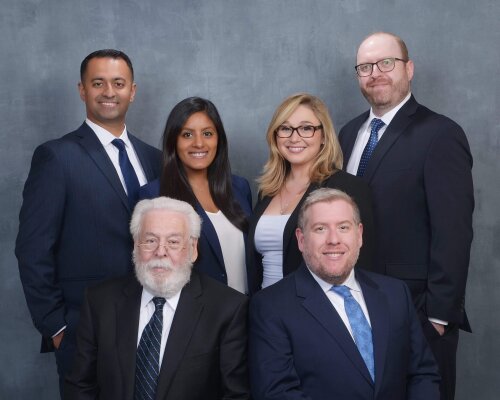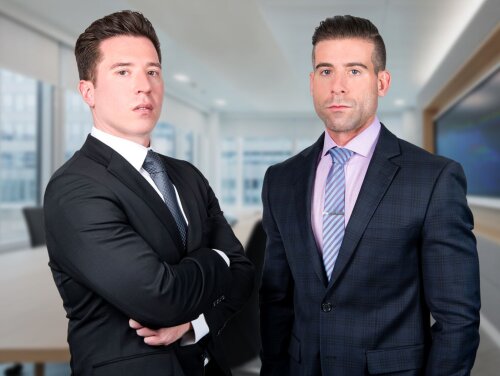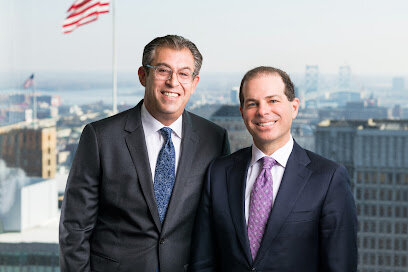Best Premises Liability Lawyers in Philadelphia
Share your needs with us, get contacted by law firms.
Free. Takes 2 min.
List of the best lawyers in Philadelphia, United States
About Premises Liability Law in Philadelphia, United States
Premises liability is the area of law that covers injuries suffered on someone else s property because of unsafe conditions. In Philadelphia, as elsewhere in Pennsylvania, claims typically arise from slip-and-fall accidents, stair and step failures, icy or poorly maintained sidewalks, inadequate lighting, defective handrails, dangerous conditions in stores or public buildings, and hazards in residential rentals. To succeed in a premises liability claim you generally must show the property owner or occupier owed you a duty of care, breached that duty by failing to correct or warn about a dangerous condition, and that the breach caused your injury and resulting damages.
Why You May Need a Lawyer
Premises liability cases can look straightforward but often involve complex factual and legal issues. You may need a lawyer if you are injured on someone else s property and any of the following apply - the injury is serious or requires ongoing medical care; fault is disputed or the property owner claims you were at least partly to blame; the defendant is a business, large property owner, or governmental entity; evidence needs to be preserved and investigated - for example surveillance footage, maintenance logs, or inspection records; the property owner s insurer offers a quick low settlement; you are dealing with a landlord/tenant dispute about maintenance responsibilities; or your claim involves medical liens, wage loss, or potential long-term disability. An experienced lawyer can collect and preserve evidence, calculate full damages, negotiate with insurers, and, if necessary, pursue litigation.
Local Laws Overview
Key local and state-law features that matter in Philadelphia include the following - visitor classification and duty of care: Pennsylvania law still recognizes distinctions between invitees, licensees, and trespassers, with higher duties owed to invitees and lower duties to trespassers; notice and constructive notice: property owners are generally responsible for hazards they knew about or should have discovered through reasonable inspection - plaintiffs may rely on direct notice or on the concept of constructive notice; comparative negligence: Pennsylvania reduces a plaintiff s recoverable damages by the plaintiff s percentage of fault and may bar recovery if the plaintiff is more than 50 percent at fault; statute of limitations: most personal injury and premises liability claims in Pennsylvania must be filed within two years of the injury, although special rules can extend or shorten that period in certain cases; government and municipal claims: claims against the City of Philadelphia, other municipalities, or governmental agencies can have special notice requirements and shorter timeframes - these claims often require an administrative notice or claim filing within a few months before a suit can proceed; landlord-tenant obligations: landlords in Philadelphia must maintain certain standards and keep common areas safe - local housing and property maintenance codes and state landlord-tenant principles affect liability for rental properties; local codes and enforcement: Philadelphia s property maintenance and building codes, and inspections by local agencies, can create records that help or hurt a claim; insurance and liability limits: businesses and property owners commonly rely on commercial general liability or homeowner s insurance to defend and pay claims, but policy limits and coverage disputes are common.
Frequently Asked Questions
What must I prove to win a premises liability case?
You must prove four basic elements - duty, breach, causation, and damages. Duty means the owner or occupier owed you a legal obligation to maintain safe premises or to warn of dangers. Breach means the owner failed to meet that duty. Causation means the breach was a substantial factor in causing your injury. Damages means you suffered measurable harm such as medical bills, lost wages, or pain and suffering.
How long do I have to file a claim in Philadelphia?
In most Pennsylvania personal injury claims the statute of limitations is two years from the date of injury. Special rules can apply for claims against government entities, claims by minors, or where the injury was not discovered right away. Because deadlines can be strict, it is important to contact a lawyer promptly.
Who can be held liable for a dangerous condition on property?
Liability can attach to the property owner, a tenant who controls the dangerous area, a business that created or knew about the hazard, a property manager, or others who had the duty and control to remedy the hazard. Identifying the right defendant is an important early step in the case.
What is comparative negligence and how does it affect my claim?
Pennsylvania uses comparative negligence. If you were partly at fault for your injury, your recovery is reduced by your percentage of fault. If a court finds you more than 50 percent at fault, you may be barred from recovering damages. Your lawyer will argue to minimize your percentage of fault.
Will my case go to trial or settle out of court?
Most premises liability cases settle before trial. Insurers often evaluate the cost of defense and exposure and may settle. However, disputes over fault or damages sometimes require filing a lawsuit and going to trial if a fair settlement is not available. A lawyer will advise whether settlement offers are reasonable based on the facts and damages.
Can I sue if I was injured on a public sidewalk or in a city-owned park?
Possibly, but suing a government-owned or maintained property often involves special administrative notice requirements and shorter deadlines. You typically must file a written notice or claim with the government within a prescribed period before filing suit. Because these rules are technical and strict, consult a lawyer immediately if a city-owned property may be at fault.
What kind of evidence is important in a premises liability case?
Key evidence includes photographs of the hazard and scene, incident or maintenance reports, surveillance video, witness statements, medical records and bills, records of employer wage loss, inspection and repair logs, prior complaints about the hazard, and communications with the property owner or insurer. Preserving evidence quickly is critical.
Do I need a lawyer if the other side offers to pay my medical bills?
Not necessarily, but be cautious. An offer to pay medical bills could be a nominal attempt to limit liability while preserving defenses. Accepting payment without a written agreement may waive or complicate your claim. Consult an attorney before signing releases or accepting any settlement offer.
How much does hiring a premises liability lawyer cost?
Many personal injury lawyers in Philadelphia work on a contingency-fee basis - meaning the lawyer is paid a percentage of any recovery and there is no fee if you do not recover. The contingency percentage and whether litigation costs are deducted before or after the fee can vary, so ask about the fee structure and get it in writing at the first meeting.
What if I was trespassing when I got hurt?
Trespassers generally have limited rights under premises liability law. Property owners owe minimal duties to trespassers, although they cannot willfully or wantonly cause harm. In some circumstances - for example, if the trespasser is a child and a hazardous condition is likely to attract children - different rules may apply. Speak to a lawyer to evaluate the specific facts.
Additional Resources
Philadelphia Department of Licenses and Inspections - enforces local property and housing codes that often create helpful inspection and violation records. Philadelphia Municipal Court and the Court of Common Pleas of Philadelphia County - for filing civil claims and learning court procedures. Pennsylvania Bar Association and Philadelphia Bar Association - for lawyer referral services and consumer information about legal rights. Local legal aid organizations - provide low-cost or pro bono help in some situations. State statutes and court decisions - interpreted by attorneys and judges and useful for understanding time limits, notice requirements, and procedural rules. Your insurance company s consumer information materials - for understanding how liability insurance commonly handles premises claims.
Next Steps
If you have been injured on someone else s property in Philadelphia - take these steps promptly - seek medical care and follow your provider s advice; report the incident to the property owner, manager, or business and request an incident report; preserve evidence - take photos, keep clothing and shoes, and write down what happened while it is fresh; identify and collect contact information for witnesses; preserve documentation - medical bills, pay stubs showing time off work, and any correspondence with the property owner or insurer; do not sign releases or give recorded statements to insurers without consulting an attorney; contact a Philadelphia premises liability attorney for a free or low-cost consultation to evaluate your claim, explain potential deadlines and notice requirements, and outline likely damages and recovery options. Acting quickly helps preserve legal rights and increases the chance of a fair resolution.
Lawzana helps you find the best lawyers and law firms in Philadelphia through a curated and pre-screened list of qualified legal professionals. Our platform offers rankings and detailed profiles of attorneys and law firms, allowing you to compare based on practice areas, including Premises Liability, experience, and client feedback.
Each profile includes a description of the firm's areas of practice, client reviews, team members and partners, year of establishment, spoken languages, office locations, contact information, social media presence, and any published articles or resources. Most firms on our platform speak English and are experienced in both local and international legal matters.
Get a quote from top-rated law firms in Philadelphia, United States — quickly, securely, and without unnecessary hassle.
Disclaimer:
The information provided on this page is for general informational purposes only and does not constitute legal advice. While we strive to ensure the accuracy and relevance of the content, legal information may change over time, and interpretations of the law can vary. You should always consult with a qualified legal professional for advice specific to your situation.
We disclaim all liability for actions taken or not taken based on the content of this page. If you believe any information is incorrect or outdated, please contact us, and we will review and update it where appropriate.












